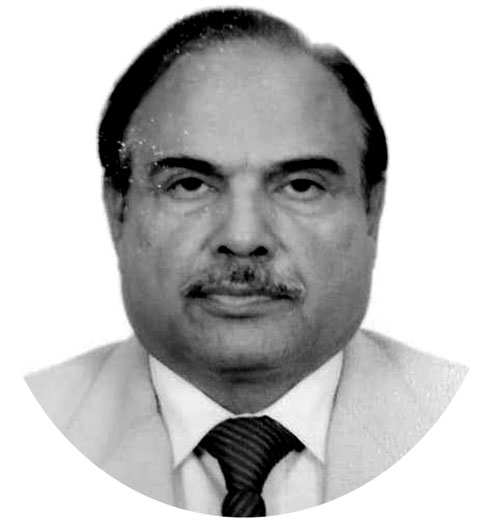Kanwar Muhammad Dilshad
WITHOUT waiting for a Supreme Court decision on the presidential reference on the issue, the government has promulgated an ordinance amending the Elections Act 2017 for the use of an open and identifiable ballot in the coming and future Senate elections. Interestingly, the text of the one-page ordinance titled the Elections Amendment Ordinance 2021 was released by Federal Minister for Information through his official social media account on twitter instead of Ministry or Law and Justice and Parliamentary Affairs without consultation with Election Commission of Pakistan which is custodian of neutrality, impartiality and objectivity as per Article 218 of the Constitution.
Astonishingly, the text shows that the Ordinance has come into force at once, but amendments to section 122, 81 ,33 and 185 of Elections Act 2017 has made it conditional on the final decision of the Supreme Court on the presidential reference. It’s questionable that section 33 of Elections Act 2017 is meant for inquiry into claims and objections and doesn’t relate to secrecy and the author of the Ordinance ignored section 178 which is related to Senate elections and more important than section 185. It’s more interesting to note that sections 81 and 185 are dealt with elections for national and provincial assemblies and don’t come under the purview of Senate elections. The government promulgated the ordinance for open Senate polls before the announcement of schedule for the Senate elections.
The government has very little time to make amendments to the Constitution and because of this the Ordinance was promulgated. As the Supreme Court has not yet decided the presidential reference which the government has filed to seek interpretation of Article 226 of the Constitution and explore the possibility of open balloting for Senate elections…. it’s eyes opener that an ordinance could never overrule the Constitution which is a supreme legislation. The promulgation of the Ordinance at a time when the Supreme Court is still examining the matter and the National Assembly has already rejected the move is beyond comprehension and it is not a proper time and situation to promulgate an ordinance.
In my considered opinion a better way would be to make this change part of a larger set of electoral reforms that are in any case overdue and required. It is high time that the government and the opposition agree to start processing such reform work in the house committees with the intention of drafting a comprehensive bill that fixes all weaknesses in the electoral system. All stakeholders should be taken on board and the bill passed through a consensus so that everyone takes ownership of it and ensures that it is implemented in letter and spirit for the next general elections. The idea of promulgating the Ordinance was floated by Attorney General Khalid Javed khan and was endorsed by the PM. There was no opposition to the idea by any cabinet member. Interestingly, the proposal to seek Supreme Court opinion under Article 186 of the Constitution was also floated by the Attorney General. So far, the Election Commission of Pakistan has been completely silent on the government move to amend the Elections Act. The elections are to be held for 48 Senate seats around 2 or 3 March 2021.
The government took the decision to issue an ordinance after the opposition blocked the bill tabled in the National Assembly to bring about the changes in the existing mode of secret balloting in the election for the Senate. Legal experts will have to determine if the change in this act would suffice for open balloting to take place or whether a constitutional amendment will actually be needed for the purpose. There is no arguing that the menace of vote purchasing in the Senate elections must be done away with. The government has framed its initiative in a way that suggests that the only reason the opposition is not agreeing to such a change in the voting method at this time is because it (opposition) wants corruption to flourish in these elections.
The aim should be to have this comprehensive reform legislated before the next general election so that all stakeholders are fully invested in it and to ensure that the reform package does not become a victim of political disagreements. If the government and the opposition genuinely want to improve the electoral system, they should avoid shortcuts and choose the right way. Meanwhile, the Pakistan Bar Council passed a resolution condemning the mode and manner of promulgating the Election Amendment Ordinance, 2021.
The resolution dubbed the promulgation of the ordinance as an endeavour to control and manipulate the coming Senate elections, in disregard to all legal principles and ethics, and which is also in conflict with the provisions of the Constitution particularly its Article 226.
—The writer is former Federal Secretary Election Commission of Pakistan and currently Chairman National Democratic Foundation.










